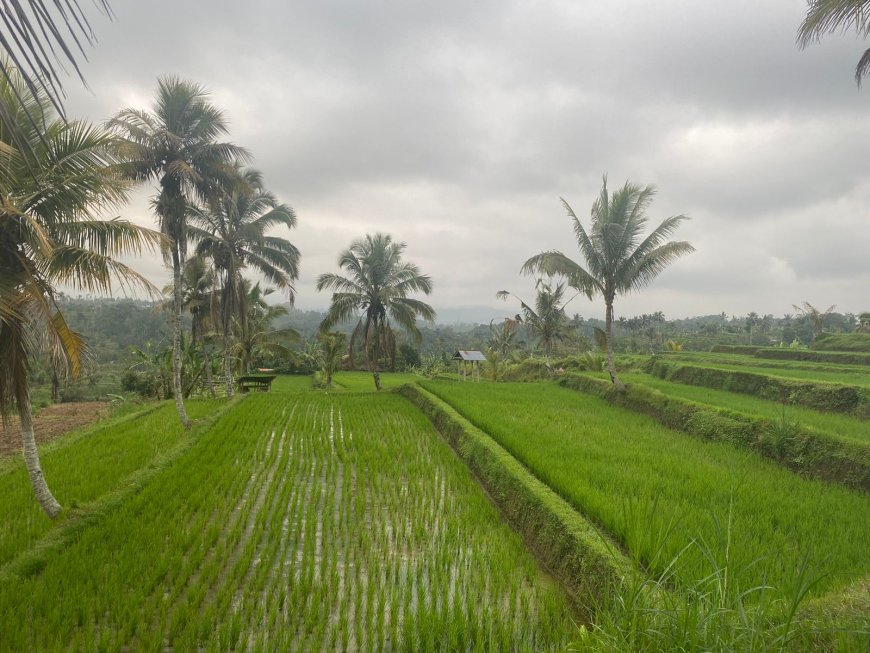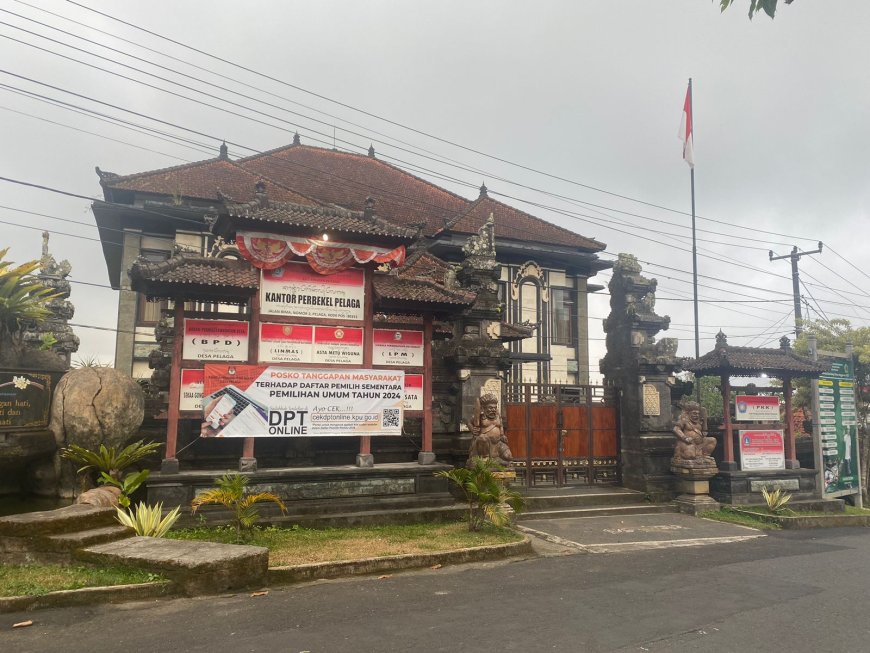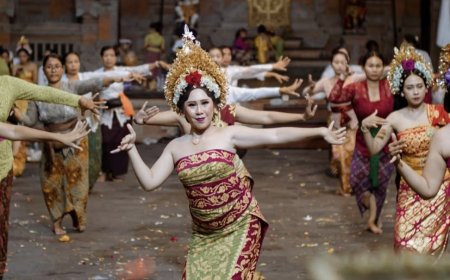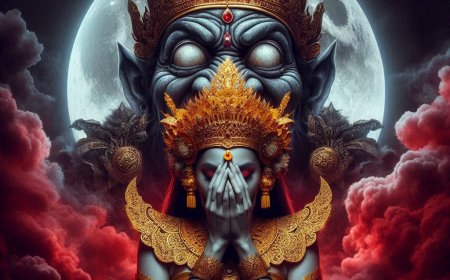Paralaga, the Mystery Behind the Name of Pelaga Village
Pelaga Village is one of those agricultural-based tourist villages located in Badung regency, Bali. Apart from its agricultural tourism appeal, Pelaga Village also has a rather unique naming history. So, this article will dive deeper into the history and origin of the name of Pelaga Village.
Pelaga Village itself is located in the northern part of Badung regency, about 45 km away from the provincial capital, precisely in the Petang district. This village is quite known for offering a unique experience to its visitors with its peaceful and green village atmosphere. Pelaga Village also has a tourist attraction based on agriculture because it is mostly dominated by green fields and rice paddies.
Besides having its own tourist attraction, Pelaga Village also has an origin story that is equally unique. Some people might know Pelaga Village primarily for its tourism, so there are few who are aware of the story behind the name. The historical background of how Pelaga Village got its name can be found in the "Mendang Kemulan" manuscript, which is indeed related to Pelaga Village. The origin of the name Pelaga Village can be connected to the story in that manuscript, which tells how the name of Pelaga Village itself is related to the history of the Gegelang Kingdom.

Pelaga Rice Fields (Photo Source: Private Collection)
Around the 9th century, there was a kingdom called Gegelang that existed. This kingdom was ruled by a wise king, so the people of the Gegelang Kingdom lived prosperously and peacefully. The king had a queen, a concubine, and two sons. The eldest son was born to the concubine, while the younger son was born to the queen. In short, when the Gegelang king reached old age and his sons had grown into adults, he planned to pass his throne to one of his sons. Before long, news of this plan reached the ears of the Gegelang Kingdom's residents. This news caused unrest among the people of Gegelang as they debated which son was entitled to succeed their father as the Gegelang king. This debate was rooted in the fact that the first son was from the concubine's lineage, while the second son was from the queen's lineage. During that time, the majority of Gegelang's residents tended to favor the queen's son as the rightful heir to the throne, disregarding the distinction between the queen's lineage and the concubine's lineage. Eventually, these rumors reached the first son of the king, and he felt slighted and believed that he, as the king's firstborn, should take the throne without considering the queen's lineage or the concubine's.
Consequently, the first son of the king harbored jealousy and resentment towards his younger brother, who was born of the queen. Fueled by these intense feelings of envy and jealousy, the first son of the king began contemplating a way to secretly eliminate his brother before the ceremony that would designate his brother as the crown prince and, eventually, the king. He then summoned the chief minister of the Gegelang Kingdom to convey his malicious intent. At that time, the relationship between the two sons of the king was exceptionally close, as if there were no animosity or ill intentions in the hearts of either of them.
At the appointed time, to carry out his evil plan, the first son of the king invited his younger brother for a hunting trip deep into the forest. They were accompanied by the chief minister, who had conspired with the elder brother and brought hunting equipment along. The two sons of the Gegelang king set off into the forest. When they reached a point where they felt it was safe to carry out their wicked intent, the first son of the king ordered the chief minister, who had conspired with him earlier, to kill his younger brother. At that moment, the forest became eerily silent - the bird songs ceased, the forest creatures seemed reluctant to make a sound, and the wind paused as if frozen in witness to the murder of the youngest son of the Gegelang king. After ensuring his younger brother was lifeless, the body was dragged and concealed under a decaying tree, as if it had been crushed or buried by the fallen tree and covered with leaves to remain unseen. With the belief that his aspiration to become king was nearly realized since the obstacle to his kingship had been removed, the first son of the king, along with the chief minister, returned to the kingdom and kept the incident a closely guarded secret.
It is told that not long after the murder of the crown prince, a hunter, returning late from his hunting expedition and riding his horse along a very dark and overgrown path, arrived at a point where his horse refused to go any further. Exhausted, the hunter decided to spend the night in the middle of the forest. He laid down and fell into a deep sleep. Just before dawn, the hunter heard a divine proclamation from the ruler of the universe, in the darkness of the night, the proclamation went:
"Hey hunter listen carefully to my words. Your king is in distress, having lost his beloved son. The loss of the king's son was due to a murder in a forest. This incident can be known through these words: Pa-Ra-La-Ga. Only this much of my message. Hurry back and report it to the king."
These words had the following meaning: Pa means "the king's son," Ra means "was killed by," La means "a minister named," and Ga means "in Gegelang" From the words Pa, Ra, La, Ga, the understanding is as follows: The king's son was killed by his own brother, and the perpetrator was a minister named Langlang Duta, and the murder occurred in the Gegelang forest.
After the proclamation disappeared, the hunter got up, mounted his waiting horse, and it was getting close to morning. Without much thought, the hunter made his way to the Gegelang palace. When the hunter arrived at the Gegelang palace, there was a grand assembly (meeting) attended by ministers, nobles, and Gegelang warriors. The assembly was discussing the disappearance of the crown prince of the Gegelang kingdom. The hunter, stuttering, approached the king and recounted the words he had heard the previous night in the middle of the forest. Once he finished telling about the proclamation, the hunter asked for permission to leave.
Upon hearing this message, the Gegelang king immediately ordered the ministers, nobles, and nearly all the people of Gegelang to spread out into the forest to find the body of the crown prince. The search, which involved all members and relatives of the royal family, eventually bore fruit. The body of the crown prince was found buried under leaves and decayed wood. The body was promptly brought back to the palace. When the group arrived at the Gegelang Palace, the body of the crown prince was presented before the king. The Gegelang king was furious to find that his crown prince had been killed. This news made the Gegelang king sick, and he eventually passed away. From that moment on, the Gegelang kingdom began to crumble and eventually disappeared.

Pelaga Village Office (Photo Source: Private Collection)
The people who lived in the former Gegelang kingdom area still often talked about the word "PARALAGA," which was the proclamation the hunter heard. Through word of mouth, "PARALAGA" slowly evolved into "PALAGA" and eventually changed to "PELAGA." And that's how the region of the former Gegelang Kingdom became known as Pelaga, which is still called that to this day.































































